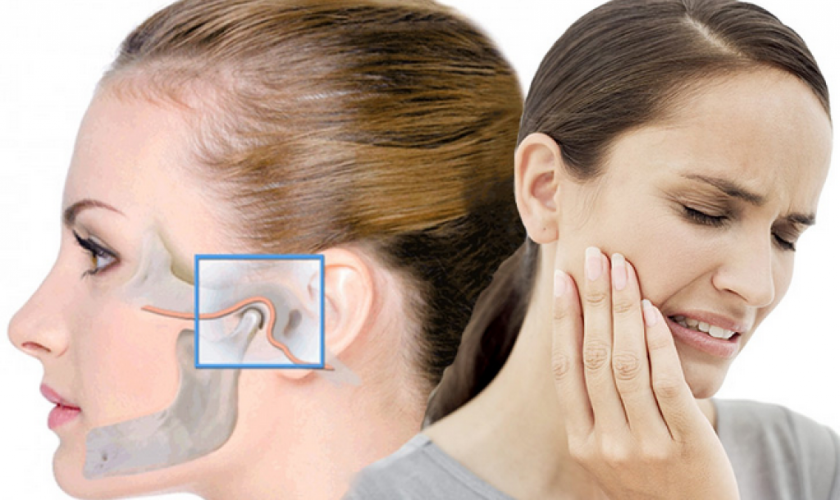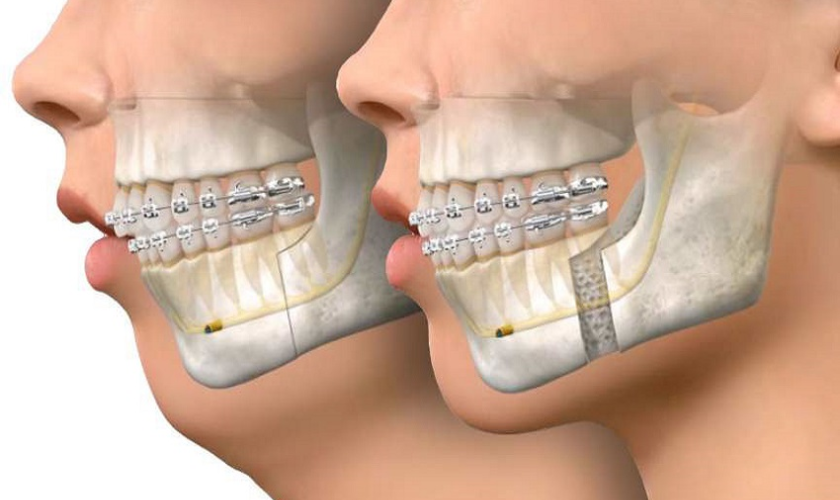
January 8, 2024, By Virginia TMJ Facial Pain and Sleep Center
Locked jaw, a disruptive condition, demands a closer look into its origins and the diverse array of treatments that can provide relief. In this blog, we navigate through the intricacies of this condition. From natural remedies to innovative interventions, join us on a quest for freedom of movement and relief. Uncover the keys to a life free from jaw pain with insights that empower you against the constraints of jaw locking. Get ready to embark on a path towards effortless jaw mobility and well-being.
What Causes Jaw Locking?
The most common reasons to experience locked jaw include:
Muscle Spasms and Tension: Jaw locking often results from heightened muscle tension, commonly induced by stress. Persistent clenching or grinding can strain the jaw, leading to spasms that hinder smooth movement.
Disc Displacement: Displacement of the jaw joint’s disc, a cushioning structure, can disrupt the normal jaw movement, causing locking episodes. This misalignment often stems from various factors, including trauma or degeneration.
Inflammation within the Jaw Joint: Inflammatory conditions, such as arthritis, can affect the jaw joint, leading to swelling and restricted movement. Inflammation compromises the joint’s flexibility, resulting in the sensation of jaw locking.
Structural Irregularities: Anatomical abnormalities or irregularities within the jaw joint can contribute to locking. Conditions like temporomandibular joint disorder (TMJ) may involve structural issues that impede smooth jaw function, causing intermittent locking.
What Are The Treatments for Jaw Locking?
Here are the treatments that can unlock your jaw and elevate the quality of life.

Conservative Treatment
Embracing natural methods can be a game-changer. Heat packs applied to the affected area, coupled with specific jaw exercises, offer relief and can prevent recurring jaw locking episodes. Incorporating lifestyle adjustments, such as stress reduction techniques, aids in long-term management.
Mobilization of the Joint
Seeking the expertise of a TMJ & Orofacial specialist opens avenues for gentle joint manipulation. This mobilization enhances joint flexibility and can significantly alleviate the symptoms of jaw locking, promoting a smoother range of motion.
Bite Guards: A Shield Against Jaw Locking
Introducing a line of defense against jaw locking, customized bite guards prove invaluable. These guards act as protective barriers, particularly beneficial for those prone to teeth grinding. By reducing strain on the jaw joint, bite guards contribute to alleviating the frequency and severity of jaw locking incidents.
Injections for Jaw Locking Relief
Corticosteroid Injections: Precision is crucial when addressing inflammation contributing to jaw locking. Corticosteroid injections, administered by specialists, target the affected areas, offering temporary yet significant relief. These injections play a role in managing acute symptoms, providing a respite from the discomfort associated with jaw locking.
Flushing of the Joint (Arthrocentesis)
For those seeking minimally invasive solutions, arthrocentesis emerges as a promising option. This procedure involves flushing the jaw joint, a meticulous process that removes debris and fosters improved joint mobility. As a result, arthrocentesis can be a beneficial intervention for those grappling with persistent jaw locking.
Surgical Interventions: A Last Resort
In cases where conservative treatments prove insufficient, surgical interventions may be contemplated. While considered a last resort, these procedures target structural irregularities that contribute to chronic jaw locking. Collaborating closely with specialists, individuals can explore surgical options tailored to their unique conditions.
Seeking Professional Guidance
Consulting a TMJ & Orofacial Specialist: The cornerstone of effective jaw locking management is seeking professional guidance. Consulting with a specialist ensures a comprehensive evaluation, accurate diagnosis, and a personalized treatment plan aligned with your specific needs.
Collaborative Approach: Effective management often involves a combination of treatments tailored to the individual’s unique condition. A collaborative approach, where specialists work in tandem, provides a holistic strategy for addressing the complexities of jaw locking.
Preventing Jaw Locking Recurrence
Oral Hygiene Habits: In the quest for long-term prevention, integrating gentle jaw exercises into daily routines proves beneficial. Additionally, maintaining excellent oral hygiene contributes to overall jaw health.
Stress Management: Acknowledging the impact of stress on jaw locking underscores the importance of stress-reducing practices. Incorporating mindfulness techniques and stress management strategies can mitigate the influence of stress on jaw-related issues.
Understanding the intricate web of causes and solutions for jaw locking empowers individuals to reclaim control over their oral health. From conservative treatments to surgical interventions, a diverse range of options exists. Consultation with a TMJ & Orofacial specialist ensures personalized guidance, laying the foundation for a life free from the constraints of locked jaw.
